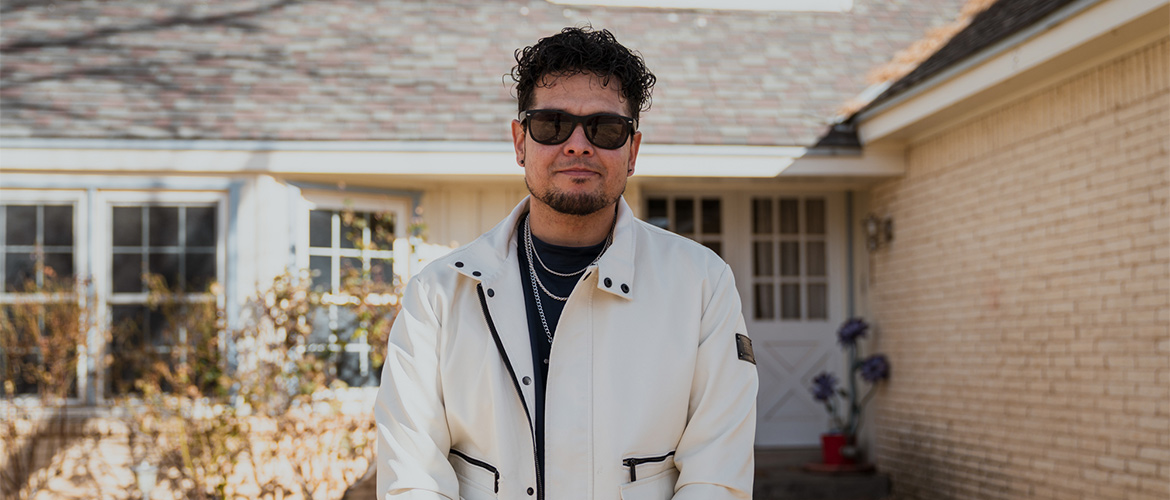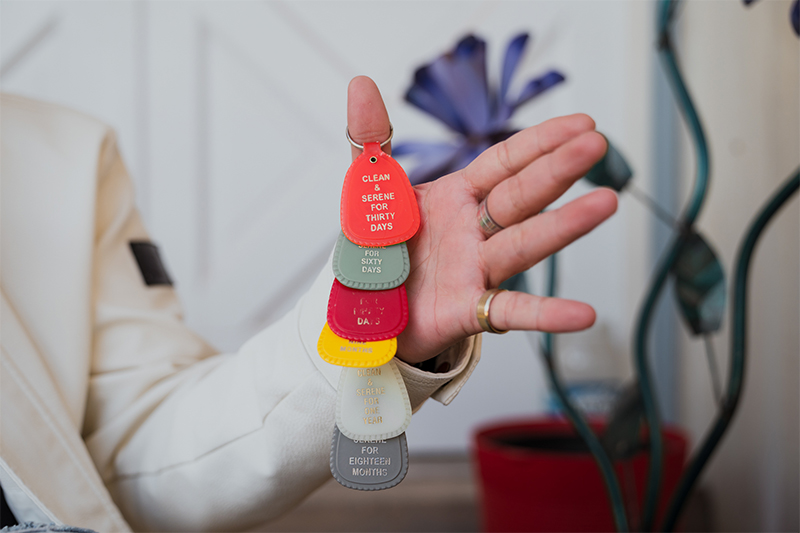The death of his best friend unraveled Juan Tejada’s life.
About 15 years ago, Tejada of Taos, then in his early 20s, joined his hometown buddy in Sante Fe to work in corrections. He’d spent his high school years using and selling drugs in Taos but decided to change course and help people.
But Tejada couldn’t cope after the day a car crash took his friend’s life. He spiraled out of control, losing his job after he stopped going to work. Tejada returned to Taos, reverted to selling and using drugs and, up until early 2023, spent much of his time in and out of prison.
“God answered my prayers that day,” says Tejada of his last arrest. “I did not want to go through all of that again.”
In jail, Tejada became sober and began meeting with a team from the Justice Transition of Care program at Blue Cross and Blue Shield of New Mexico. For about a year, Morgan Cata and Joala Costa worked to help Tejada overcome legal and health care barriers to get him accepted into an inpatient treatment and avoid a 16-year prison term.
“Joala helped me out a lot,” says Tejada, who’s working toward becoming a certified peer-support specialist. “She went over and above. Without her, I would be stuck in the same revolving door.”
Launched in 2019, the BCBSNM justice transition program’s clinical liaisons and peer-support specialists reach out to members across New Mexico in 31 jails and 11 prisons, as well as four juvenile and four tribal detention centers, to try to help them improve their health outcomes while reducing recidivism. Costa, a behavioral health care management specialist, and Cata, a state-certified recovery support specialist, focus on members in New Mexico’s Northeast corner.
Many members like Tejada often return to jail before they eventually join the program. They often face felony charges and struggle with substance use and behavioral health problems.
“We have a real opportunity with this program to reach people who are at their lowest point, to help them turn things around,” says James Gilson, senior manager of behavioral health case management and the program’s leader. “It sometimes takes a while, but when we can make that connection, it makes a huge difference.”
Cata and Costa’s perseverance paid off. Tejada, sober nearly two years now, graduated the Justice Transition of Care program and became a live-in manager at his inpatient treatment home. He works full time at Goodwill, regularly attends peer-support group meetings and mentors others with substance use backgrounds.
“He’s extremely positive,” says Cata, who regularly checks on Tejada. “He’s finding people who want to see him do well. All I can do is be there for him if he needs me.”
Tejada’s success demonstrates that connecting people in the criminal justice system with their health coverage benefits after their release can benefit them and their communities. Research shows people in prisons and jails have higher rates of health problems, mental illnesses and substance use disorders than the general population. After release, they often don’t receive the medical care and treatment they need, which leads to drug use, poor health outcomes and more encounters with the criminal justice system.
BCBSNM justice transition teams go to jails and prisons statewide to meet Medicaid members like Tejada before their release.
Once members agree to participate in the program, Costa works with them up to 90 days after release by providing health assessments and developing care plans. Meantime, Cata, whose personal background includes substance misuse and recovery, uses that experience to connect with members and guide them to doctors, housing and other resources — whatever they believe will help them begin recovery.
“You never know whose life you’re going to change,” Costa says. “This is a population that’s often overlooked. They just need a chance.”
Since it started, the justice transition team performed more than 4,500 transition of care assessments and include transition care plans as part of the process.
Fighting for a second chance
Tejada’s case proved to be one of Costa’s most challenging because of his lengthy history with substance use disorder and criminal record coupled with expulsion from his first inpatient treatment placement.
Costa fought to obtain the court records and behavioral health evaluations required to show Tejada deserved a second chance. In April 2024, Tejada was accepted at an Albuquerque inpatient treatment home, where he is a staff member and mentor.
“He was looking at so much time,” Costa says. “Now, he’s helping other people and is a sponsor. He wants to become a peer-support worker. He had to take advantage of that second chance, and he really did it.”


